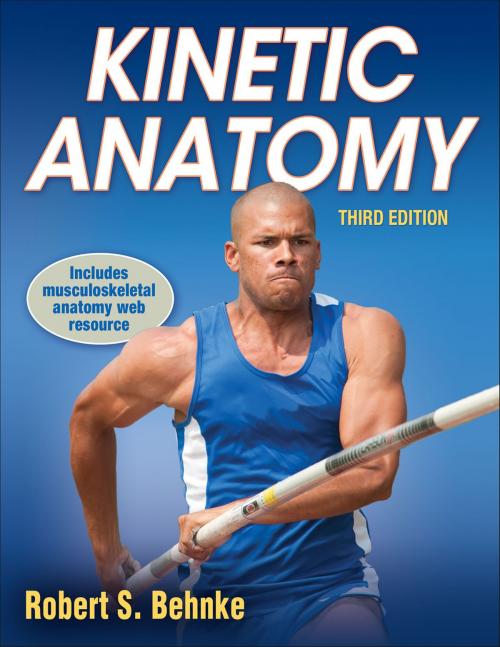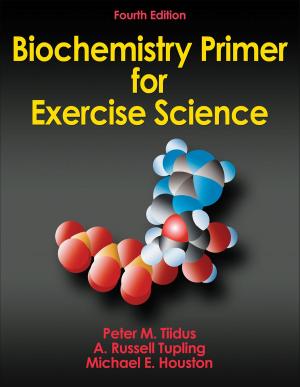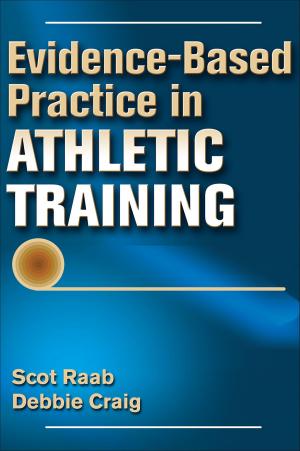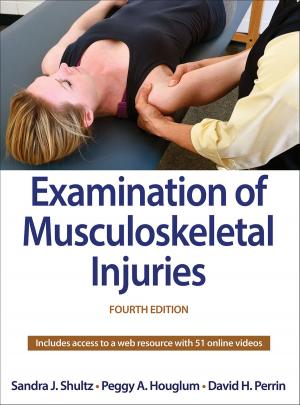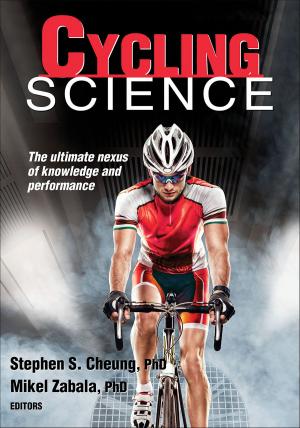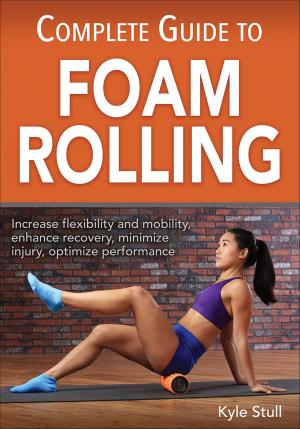Kinetic Anatomy
Nonfiction, Health & Well Being, Medical, Medical Science, Anatomy, Science & Nature, Science, Biological Sciences, Human Physiology| Author: | Robert S. Behnke | ISBN: | 9781492582595 |
| Publisher: | Human Kinetics, Inc. | Publication: | June 4, 2012 |
| Imprint: | Human Kinetics, Inc. | Language: | English |
| Author: | Robert S. Behnke |
| ISBN: | 9781492582595 |
| Publisher: | Human Kinetics, Inc. |
| Publication: | June 4, 2012 |
| Imprint: | Human Kinetics, Inc. |
| Language: | English |
Created primarily for those who will work in physical activity fields, the third edition of Kinetic Anatomy continues to building on its previous editions to assert itself as the ideal resource for learning structural anatomy and how it affects movement. The text gives students a firm concept of musculoskeletal anatomy by systematically assembling each component of the human body. Layer by layer, readers will study bones, ligaments, joints, and muscles on the bones, as well as the nerves and blood vessels that supply these muscles that are essential for movement.
Kinetic Anatomy, Third Edition, includes coverage of three major structures that are not often considered when studying the anatomy of movement: the brain, heart, and lungs. As the centerpieces for the nervous, cardiovascular, and respiratory systems, these structures are essential to human movement and are highlighted throughout the text where appropriate. In addition, other fundamental features make this resource a valuable tool for learning and teaching human anatomy:
• A one-year subscription to Musculoskeletal Anatomy Review, an online anatomy program, provides an interactive forum for reviewing regional structural anatomy.
• A new chapter on the head completes the regional approach followed in the text.
• More information on muscle and motor units helps broaden information on movement potential in selected sport activities.
• Expanded discussion on joint strength and movement and the function of muscles (agonists, antagonists, stabilizers, and synergists), levers, and exercise supports understanding of how the human body is constructed.
• Full-color photos and illustrations enhance the learning experience.
• New Functional Movement Exercises provide students with the opportunity for practical application of their studies by asking them to identify the prime mover, antagonist, fixator, and synergist muscle in a particular movement.
• Hands On exercises throughout the book offer students practice in physically identifying anatomical structures on themselves or on a partner.
Included with each new text is a key code allowing students one-year access to the online anatomy program Musculoskeletal Anatomy Review. This engaging supplement to the text offers a regional review of structural anatomy with exceptionally detailed, high-quality graphic images—the majority provided by Primal Pictures. Students can mouse over muscles and click for muscle identification, and each chapter features a pretest and posttest evaluation to help students pinpoint knowledge gaps and test their retention. The pretest can be taken multiple times and is generated randomly so it will never be the same, but the posttest may be taken only once. Test results can be printed and turned in so instructors have the option to use the tests as a grading tool.
To further facilitate learning, each chapter in the book concludes with a review of the key terms referred to in the chapter, suggested learning activities, and review questions in multiple-choice and fill-in-the-blank formats. The answers to the questions are provided at the end of the book. For instructors, a new image bank accompanies the updated instructor guide and test package to aid in delivering the course content.
Kinetic Anatomy, Third Edition, is an outstanding introductory resource for those who plan to specialize in any field related to physical activity. Readers will learn what structures are involved in movement and how those structures should function, allowing them to identify problems and correct them to enhance physical activity.
Created primarily for those who will work in physical activity fields, the third edition of Kinetic Anatomy continues to building on its previous editions to assert itself as the ideal resource for learning structural anatomy and how it affects movement. The text gives students a firm concept of musculoskeletal anatomy by systematically assembling each component of the human body. Layer by layer, readers will study bones, ligaments, joints, and muscles on the bones, as well as the nerves and blood vessels that supply these muscles that are essential for movement.
Kinetic Anatomy, Third Edition, includes coverage of three major structures that are not often considered when studying the anatomy of movement: the brain, heart, and lungs. As the centerpieces for the nervous, cardiovascular, and respiratory systems, these structures are essential to human movement and are highlighted throughout the text where appropriate. In addition, other fundamental features make this resource a valuable tool for learning and teaching human anatomy:
• A one-year subscription to Musculoskeletal Anatomy Review, an online anatomy program, provides an interactive forum for reviewing regional structural anatomy.
• A new chapter on the head completes the regional approach followed in the text.
• More information on muscle and motor units helps broaden information on movement potential in selected sport activities.
• Expanded discussion on joint strength and movement and the function of muscles (agonists, antagonists, stabilizers, and synergists), levers, and exercise supports understanding of how the human body is constructed.
• Full-color photos and illustrations enhance the learning experience.
• New Functional Movement Exercises provide students with the opportunity for practical application of their studies by asking them to identify the prime mover, antagonist, fixator, and synergist muscle in a particular movement.
• Hands On exercises throughout the book offer students practice in physically identifying anatomical structures on themselves or on a partner.
Included with each new text is a key code allowing students one-year access to the online anatomy program Musculoskeletal Anatomy Review. This engaging supplement to the text offers a regional review of structural anatomy with exceptionally detailed, high-quality graphic images—the majority provided by Primal Pictures. Students can mouse over muscles and click for muscle identification, and each chapter features a pretest and posttest evaluation to help students pinpoint knowledge gaps and test their retention. The pretest can be taken multiple times and is generated randomly so it will never be the same, but the posttest may be taken only once. Test results can be printed and turned in so instructors have the option to use the tests as a grading tool.
To further facilitate learning, each chapter in the book concludes with a review of the key terms referred to in the chapter, suggested learning activities, and review questions in multiple-choice and fill-in-the-blank formats. The answers to the questions are provided at the end of the book. For instructors, a new image bank accompanies the updated instructor guide and test package to aid in delivering the course content.
Kinetic Anatomy, Third Edition, is an outstanding introductory resource for those who plan to specialize in any field related to physical activity. Readers will learn what structures are involved in movement and how those structures should function, allowing them to identify problems and correct them to enhance physical activity.
